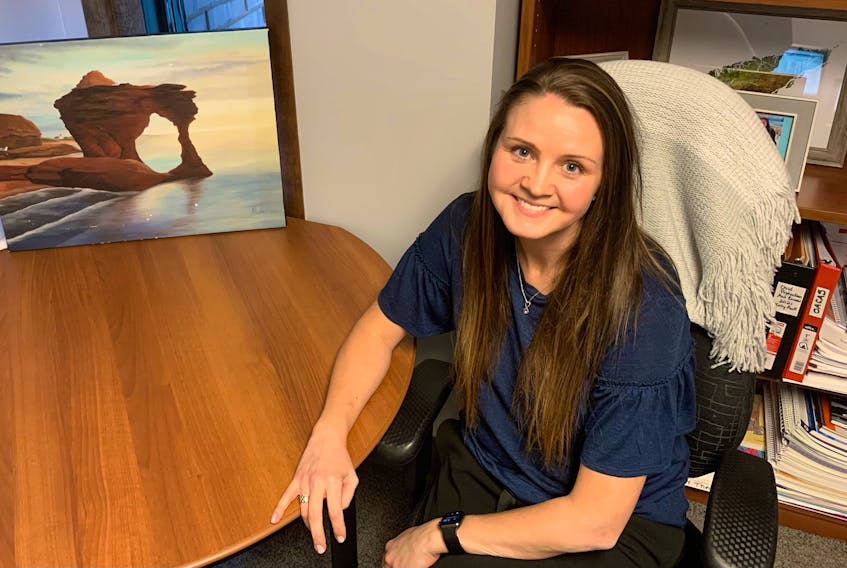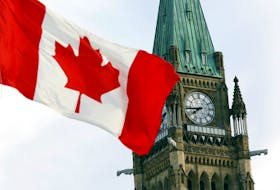CHARLOTTETOWN, P.E.I. — The decision to end the practice of birth alerts in P.E.I. couldn’t have gone any other way, says Kelly Peck, director of child protection in P.E.I.
The practice allowed social workers, who worried about the safety of newborns, to contact a hospital and flag expectant mothers without their consent. The hospital would contact the social worker once the child was born.
The Truth and Reconciliation Commission and the National Inquiry into Missing and Murdered Indigenous Women and Girls (MMIWG) found the practice to be racist and to disproportionately affect Indigenous parents, which led to B.C. banning the practice in 2019, followed by Ontario and Manitoba in 2020.
In early 2020, P.E.I. began a review of the practice and found what other provinces had: the government doesn’t have the authority to share personal information about an adult without their consent, said Peck.
“It was never in our policy. It was never in our legislation. It was a practice that began years ago and it was just never reviewed in its entirety, not only P.E.I., but in any other jurisdiction up until recently.”
A released statement from the government said the practice wasn’t authorized by the Child Protection Act and was in violation of the Charter and privacy rights of expectant mothers.
While there are no indications Indigenous families have been unfairly targeted in this province, the government doesn’t report specifically on Indigenous statistics.
Safety
After the recent decision was announced, P.E.I.’s child and youth advocate Marvin Bernstein spoke out about the lack of consultation with his office in the decision-making process.
In hindsight, his office should have been included, though the government still would have made the same decision, said Peck.
“I don’t believe there’s anything that could have changed this decision being made given the legislation against it and the privacy rights of an expectant parent.”
Birth alert statistics for P.E.I.:
• About 10-15 birth alerts were received by P.E.I. hospitals each year.
• 63 birth alerts were made to P.E.I. hospitals in the last five years.
• Of those, six resulted in infants being removed from their families, about 9.5 per cent.
• 44, or 69.8 per cent, resulted in an open file with Child Protection Services.
Bernstein says his main concern continues to be the safety of the voiceless newborns.
“How can we weigh this because the primary concern, the paramount concern, should be the safety of that newborn infant child.”
Peck doesn’t see safety as an issue. Anyone with concerns about the child's safety, including hospital staff, still have a duty to report, she said.
“I think it’s really important to understand that as soon as that child is born, the hospital can call us right away and we will go out and assess and do the same work.”
She also thinks parents could be better served without the risk of birth alerts, she said.
“My hope is that without these birth alerts, expectant parents will feel more confident to reach for services to do the work prior to giving birth in hopes that they’re able to continue to parent that baby or that infant once he or she is born.”
But Bernstein worries that in some cases, it may be too late once the child is born.
Consultation
Bernstein found out about the government’s decision in February when he was contacted by a reporter for comment. Government had ended the practice as of Jan. 31.
Bernstein still has not received any information about the practice and feels his office should have been included, he said.
“These are layered and complex issues and if I had been involved, if I will be involved, it allows an opportunity to look at this from a variety of different perspectives and to really focus on what this would mean to the safety of the newborn infant children.”

In the statement, the government said it is the responsibility of the child and youth advocate to request information on policy.
However, Bernstein wasn’t aware of the review or the potential decision, he said.
“How can I request information if I’m not notified, alerted or briefed? I’d have to be clairvoyant in terms of trying to anticipate a possible significant shift in the policy direction.”
Bernstein requested a briefing on the subject and has since been in contact with Housing and Social Development Minister Brad Trivers and deputy minister David Keedwell, who could not be reached for comment.
A meeting is set for Tuesday to discuss the issue.
“I think they were interested in having a meeting and establishing stronger lines of communication,” said Bernstein, “but I think it’s important to pursue this earlier request for a full, in-person briefing and then to understand what are the plans going forward in terms of replacing the birth alerts.”
Michael Robar is a reporter at The Guardian. He can be reached by email at [email protected] and followed on Twitter at @MichaelRobar.









